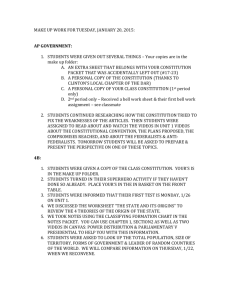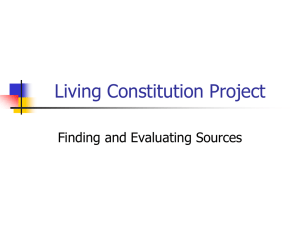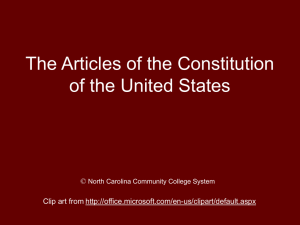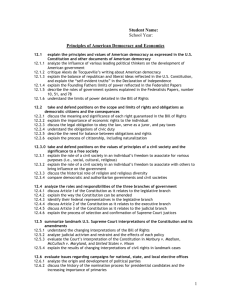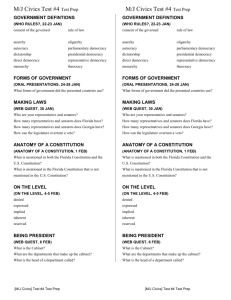Practice Test: Scientific Revolution 7th Grade History
advertisement
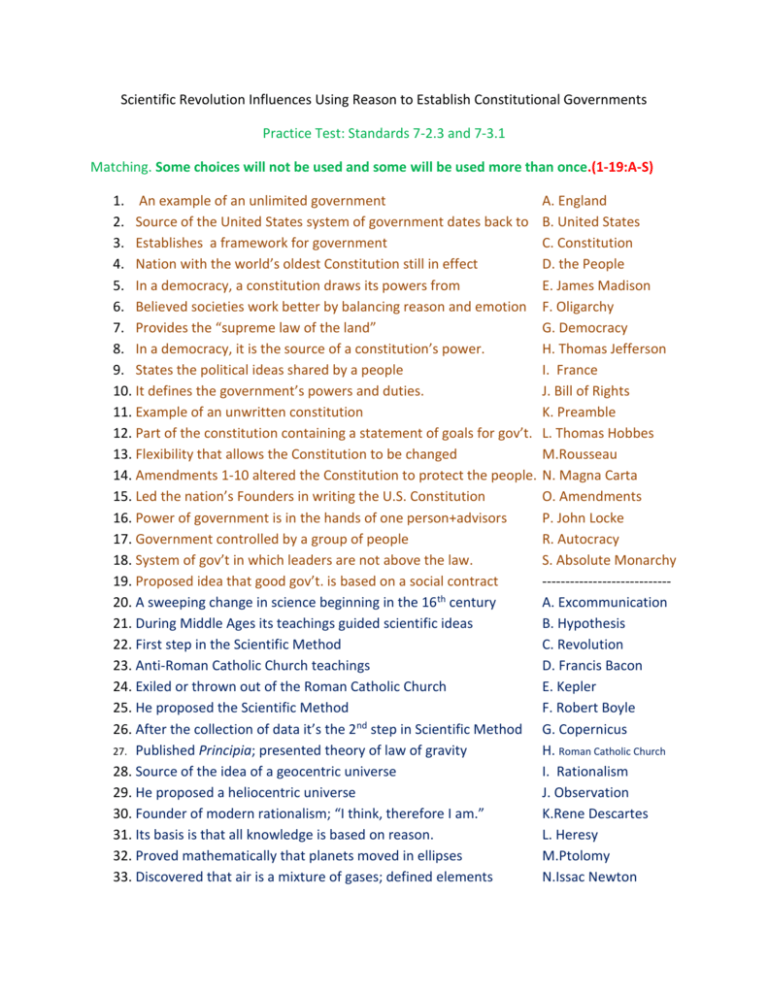
Scientific Revolution Influences Using Reason to Establish Constitutional Governments Practice Test: Standards 7-2.3 and 7-3.1 Matching. Some choices will not be used and some will be used more than once.(1-19:A-S) 1. An example of an unlimited government 2. Source of the United States system of government dates back to 3. Establishes a framework for government 4. Nation with the world’s oldest Constitution still in effect 5. In a democracy, a constitution draws its powers from 6. Believed societies work better by balancing reason and emotion 7. Provides the “supreme law of the land” 8. In a democracy, it is the source of a constitution’s power. 9. States the political ideas shared by a people 10. It defines the government’s powers and duties. 11. Example of an unwritten constitution 12. Part of the constitution containing a statement of goals for gov’t. 13. Flexibility that allows the Constitution to be changed 14. Amendments 1-10 altered the Constitution to protect the people. 15. Led the nation’s Founders in writing the U.S. Constitution 16. Power of government is in the hands of one person+advisors 17. Government controlled by a group of people 18. System of gov’t in which leaders are not above the law. 19. Proposed idea that good gov’t. is based on a social contract 20. A sweeping change in science beginning in the 16th century 21. During Middle Ages its teachings guided scientific ideas 22. First step in the Scientific Method 23. Anti-Roman Catholic Church teachings 24. Exiled or thrown out of the Roman Catholic Church 25. He proposed the Scientific Method 26. After the collection of data it’s the 2nd step in Scientific Method 27. Published Principia; presented theory of law of gravity 28. Source of the idea of a geocentric universe 29. He proposed a heliocentric universe 30. Founder of modern rationalism; “I think, therefore I am.” 31. Its basis is that all knowledge is based on reason. 32. Proved mathematically that planets moved in ellipses 33. Discovered that air is a mixture of gases; defined elements A. England B. United States C. Constitution D. the People E. James Madison F. Oligarchy G. Democracy H. Thomas Jefferson I. France J. Bill of Rights K. Preamble L. Thomas Hobbes M.Rousseau N. Magna Carta O. Amendments P. John Locke R. Autocracy S. Absolute Monarchy ---------------------------A. Excommunication B. Hypothesis C. Revolution D. Francis Bacon E. Kepler F. Robert Boyle G. Copernicus H. Roman Catholic Church I. Rationalism J. Observation K.Rene Descartes L. Heresy M.Ptolomy N.Issac Newton







